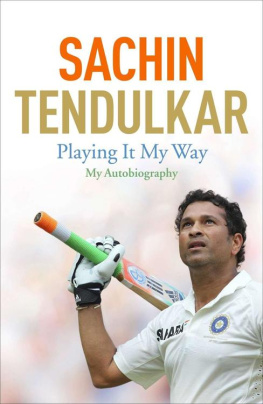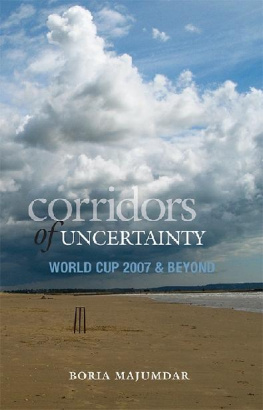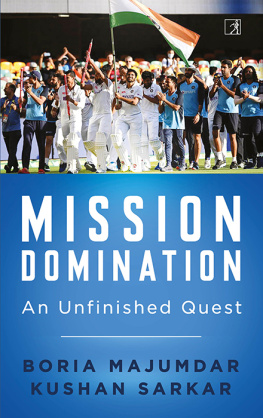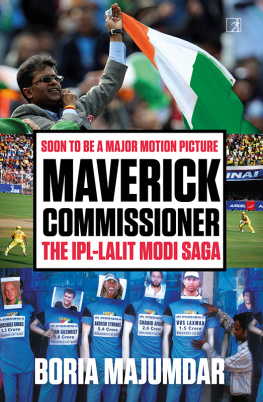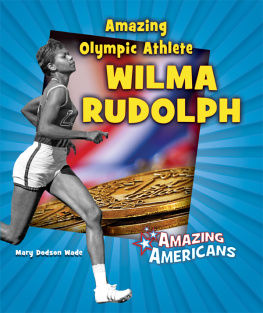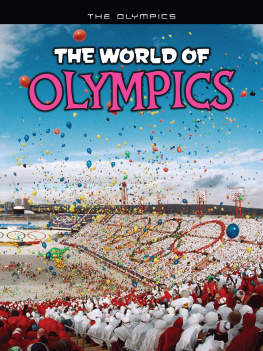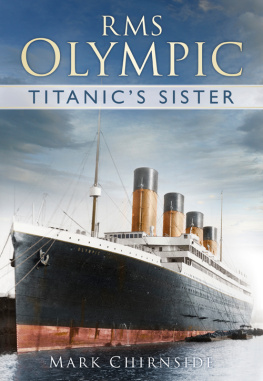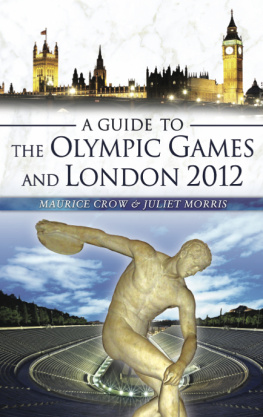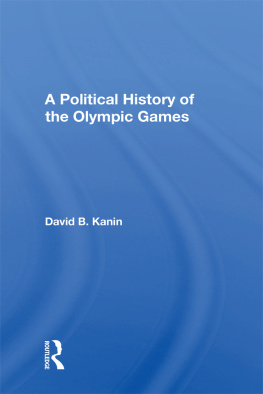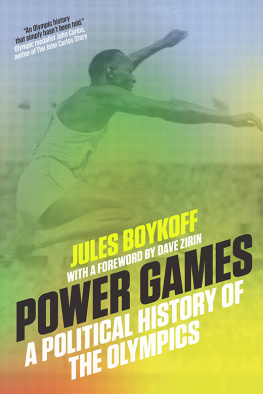Olympics:
The India Story
Boria Majumdar
Nalin Mehta

For John MacAloon and Bruce Kiddthe two people
who inducted me into Olympic Studies
Boria Majumdar
For my late grandfather who came out of retirement to
help organize the 1982 Asiad and gave me
my first memory of Appu
Nalin Mehta
Contents
The Tricolour since Beijing: Indian Sport,
Olympism and Nationalism
When Sir Dorabji Tata organized the first modern meet of Indian athletes with an eye on the 1920 Antwerp Olympic Games, he found that despite running barefoot, their performance compared well with the times done in Europe or elsewhere. Suitably impressed, Tata personally financed three of the best runners for Antwerp, a move that in his own words fired the ambition of the nationalist element in the city. In a country of a billion, and a competitive media industry looking for new heroes and new stories, the lone gold medal was justification enough to spark off celebrations worthy of topping the medals tally.
This book was written and first published in India just before the 2008 Beijing Games and the Indian performance necessitated a suitable Afterword. It was added in the updated version published by Routledge in the Beijing aftermath in April 2009. With London just months away and promising to be a defining moment in the history of Indias Olympic sport, a further revised and updated edition was a necessity. Here it is.
For Indian sport, Beijing and the years that followed proved to be a watershed. Beijing 2008 was much more than a sporting spectacle not just because Indias performance was its best ever at the Games but also because it heralded the promise of a new beginning for Indian sports. Bindra was not an aberration. His performance was followed by near-podium finishes in badminton, tennis and archery and the gains have been consolidated since, written about at length in the chapter on Indian sport later on in the book. Just when it was turning out to be a tale of so near yet so far in China, Vijender Kumar (bronze in boxing, 75 kg) and Sushil Kumar (bronze in wrestling, 66 kg freestyle) ensured that the Indian tricolour went up twice more at Beijing. Their achievements, analysed for hours on television, turned them into national celebrities overnight. If the media catharsis that followed was any indication, for the first time, Olympic sports, apart from hockey, was at the centre stage of what could be termed as the national consciousness.
It was an indication that decades of ill treatment and neglect, which had reduced Olympic sport to a footnote in India, might just change. At a time when the country was reeling under the impact of serial blasts in Gujarat and Karnataka, the medal successes helped emphasize the point that across contexts and timeframes an Olympic gold can catapult sport to the forefront of a nations imagination. Three major themes emerged in the discourse that followed: renewed media focus on Olympism as a nationalist playing field, the promise of a new Indian Olympic culture and the fear that without systemic change in Indian sporting structures, this would be yet another false dawn.
For the first time in Indian Olympic history, the media appropriated these accomplishments in a manner associated commonly with cricket. All of a sudden, Bindra was flooded with sponsorship offers that had long since been reserved for over-pampered cricket stars alone. A poll on Times Now, Indias most popular English TV news channel, revealed that the national religion of cricket had slid in the popularity charts. According to the survey, 53 per cent of sports fans in Chennai and 44 per cent in Kolkata were glued to the Olympics. In contrast, 41 per cent of sports fans in Chennai and 29 per cent in Kolkata watched
The medal haulby Indian standardsit seemed, had suddenly woken up the country to the significance of the Olympics as an event that Indians could win at as well.
The medal winners seemed to satisfy a national yearning and in the process made a statement about the significance of sport in an era of escalating political turmoil. Olympic success, the victories demonstrated, held the promise of uniting Indians across the country. With some of Indias greatest sporting achievements at the Olympics coming at a time when the nation was seeking answers to sudden terror attacks, their impact was all the more visible. In the days before the Olympic Games, most Indians were grappling with the political crisis at hand and were hardly concerned about what the small contingent of 56 could achieve in Beijing. So much so that Suresh Kalmadi, then President of the Indian Olympic Association (IOA) and now facing serious charges for alleged misappropriation of CWG 2010 funds, had issued a statement asking sports fans not to expect miracles from the athletes. Set against this backdrop of gloom and limited expectations, Indias successes shone even brighter.
The success of the three Beijing winners was as much a testament to their own skills as it was a metaphor for the larger story of India. They had arguably shattered the grand narrative of failure that has characterized Indian sport just as the emergence of the IT industry in the 1990s signified the end of the Hindu rate of growth that defined the economy since the 1950s. Just as a Narayan Murthy or an Azim Premjifounders of the IT giants Infosys and Wiprocreated the self-belief for Indian business to act as a global player after decades of isolationism and the license-permit raj, so did the Beijing victories usher in a new era of self-confidence in sport. As John MacAloon argues, the Olympics are a crucible of symbolic force into which the world pours its energies and a stage upon which, every four years, it plays out its hopes and its terrors. For every Indian, that terror always came in the form of a question: A billion people and no gold medal. Why? Beijing provided that answer, and hence the nationalist frenzy that ensued.
The annals of Indian sports writing have been full of complaints about sporting failures for far too long. Analysts have blamed the system, they have blamed the politicians who run it, they have even questioned Indian genetics. Every four years, it has become a collective national ritual to blame everyone else when found wanting in the global mirror of the Olympics, only to move on and repeat the same catharsis four years later. The Beijing athletes showed that it is possible to succeed in spite of the system. The BJPs late General Secretary and former Cabinet minister Pramod Mahajan once said only half-jokingly that the Indian IT and beauty industries rose to great heights only because the government did not realize their presence until they had already made a mark.
Abhinav Bindras success too followed a similar template, at least with respect to the national sporting superstructure. Born with the luxury of affluence and an indoor shooting range in his backyard, he emerged as a child prodigy, only to taste initial defeat at Sydney and Athens. He could as easily have given up, blamed the system and have been content with his World Championship and Commonwealth Games medals. But he persevered. His was a victory born out of the pain of loss and an iron will to succeed. Here at last was Indias answer to those who point to the success of Surinams Anthony Nesty or that of the Ethiopian runners, for that matter. It is indeed possible to succeed without access to government-sponsored sporting facilities. This is not to argue against creating efficient systemsthat would be a terrible follybut in sports there are moments when all it boils down to is self-belief.


